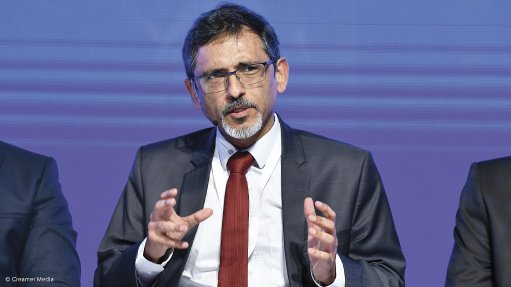Inherent conflict the downfall of public sector transport cooperatives in S Africa – report
While largely touted by government as one of the most fitting and participative ownership and management models for the country’s public transport sector, a recent State-commissioned report has attributed the high failure rate of cooperatives – which previous studies put at 94% – to poor governance, infighting and a lack of technical and financial support.
Findings from a report sanctioned by the Department of Transport (DoT) that aimed to develop a cooperative model for public transport for the taxi and minibus industry cited several “inherent” weaknesses of the model, including an ineffective founding rationale, a lack of management capacity, a lack of access to adequate and appropriate financial resources and technical support, in-fighting and greed.
“Conflict within cooperatives is rife, yet conflict resolution mechanisms are not inherent to the founding statement of cooperatives and are not made integral to the process.
“Moreover, cooperatives left to their own devices, after having been put together [by government], felt abandoned,” DoT taxi industry development director Bafana Mkhwebane told a meeting of the DoT Broad-Based Black Economic Empowerment Charter Council this week.
Elaborating on the differences between cooperatives and other business entities and how the former better satisfied government’s development agenda, he outlined that cooperatives were largely service-driven rather than profit-driven, were characterised by member-ownership rather than investor-ownership and granted one vote per member, irrespective of the number of shares held by the member.
Moreover, the management of cooperatives remained responsible to its members rather than investors, and cooperatives were also able to buy back shares from members if deemed necessary – a practice generally not allowed in companies.
Presenting the findings and recommendations of the report, Mkhwebane asserted that, despite its shortcomings, the cooperative model offered opportunities that other forms of incorporation did not.
Its strengths included established government support instruments, the ability to collectively form an anchor market opportunity and the creation of a cohesive negotiating advantage when it came to scenarios involving the need to form partnerships with capital providers or technology owners.
Moreover, government’s various integrated rapid public transport network initiatives could, according to the Company Act, still incorporate private trading entities owned by suitably incorporated cooperative structures.
“The concept of cooperatives is widely known and accepted as a vehicle towards economic emancipation and should, therefore, be embraced as a way forward in ensuring economic empowerment for both taxis and buses.
“The South African National Taxi Council supports the adoption of the model to be implemented in the country… and the DoT [continues to] explore various funding options to assist cooperatives,” Mkhwebane stated.
Comments
Press Office
Announcements
What's On
Subscribe to improve your user experience...
Option 1 (equivalent of R125 a month):
Receive a weekly copy of Creamer Media's Engineering News & Mining Weekly magazine
(print copy for those in South Africa and e-magazine for those outside of South Africa)
Receive daily email newsletters
Access to full search results
Access archive of magazine back copies
Access to Projects in Progress
Access to ONE Research Report of your choice in PDF format
Option 2 (equivalent of R375 a month):
All benefits from Option 1
PLUS
Access to Creamer Media's Research Channel Africa for ALL Research Reports, in PDF format, on various industrial and mining sectors
including Electricity; Water; Energy Transition; Hydrogen; Roads, Rail and Ports; Coal; Gold; Platinum; Battery Metals; etc.
Already a subscriber?
Forgotten your password?
Receive weekly copy of Creamer Media's Engineering News & Mining Weekly magazine (print copy for those in South Africa and e-magazine for those outside of South Africa)
➕
Recieve daily email newsletters
➕
Access to full search results
➕
Access archive of magazine back copies
➕
Access to Projects in Progress
➕
Access to ONE Research Report of your choice in PDF format
RESEARCH CHANNEL AFRICA
R4500 (equivalent of R375 a month)
SUBSCRIBEAll benefits from Option 1
➕
Access to Creamer Media's Research Channel Africa for ALL Research Reports on various industrial and mining sectors, in PDF format, including on:
Electricity
➕
Water
➕
Energy Transition
➕
Hydrogen
➕
Roads, Rail and Ports
➕
Coal
➕
Gold
➕
Platinum
➕
Battery Metals
➕
etc.
Receive all benefits from Option 1 or Option 2 delivered to numerous people at your company
➕
Multiple User names and Passwords for simultaneous log-ins
➕
Intranet integration access to all in your organisation





















